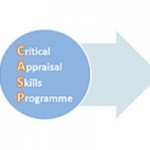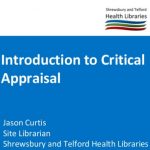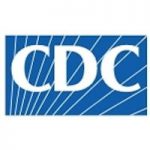
6 – Fair Tests of Treatments
In this Chapter: Why are fair tests of treatments needed? The beneficial effects of optimism and wishful thinking The need […]
| 0 Comments
5 – Dealing with uncertainty about the effects of treatments
In this Chapter: Introduction (this page) Dramatic treatment effects: rare and readily recognizable Laser treatment of portwine stains Imatinib for […]
| 0 Comments
Informed Health Choices Podcasts
Each episode includes a short story with an example of a treatment claim and a simple explanation of a Key Concept used to assess that claim
| 1 Comment | Evaluated
Informed Health Choices Primary School Resources
A textbook and a teachers’ guide for 10 to 12-year-olds. The textbook includes a comic, exercises and classroom activities.
| 0 Comments | Evaluated
Ebm@school – a curriculum of critical health literacy for secondary school students
A curriculum based on the concept of evidence-based medicine, which consists of six modules.
| 0 Comments | Evaluated
Know Your Chances
This book has been shown in two randomized trials to improve peoples' understanding of risk in the context of health care choices.
| 0 Comments | Evaluated
Philosophy for Children (P4C)
P4C promotes high-quality classroom dialogue in response to children’s own questions about shared stories, films and other stimuli.
| 0 Comments | Evaluated
McMaster Evidence-Based Clinical Practice Workshop Resources – Therapy module
This is the therapy module resources provided to the attendees at the McMaster Evidence-Based Clinical Practice Workshop.
| 0 Comments
McMaster Evidence-Based Clinical Practice Workshop Resources – Systematic review module
The Systematic review module resources provided to the attendees at the McMaster Evidence-Based Clinical Practice Workshop.
| 0 Comments
Evidence for the frontline: A report for the Alliance for Useful Evidence
Jonathan Sharples’ introduction to evaluation in education, policing and other public services.
| 0 Comments
The DIY evaluation guide
The Educational Endowment Foundation’s DIY Evaluation Guide for teachers introduces the key principles of educational evaluation.
| 0 Comments
Using research evidence: a practice guide
NESTA’s guide to using research evidence to inform decisions in policy and practice.
| 0 Comments
Policy: twenty tips for interpreting scientific claims
This list will help non-scientists to interrogate advisers and to grasp the limitations of evidence.
| 0 Comments
Understanding Health Research: evidence-based medicine, practice and policy
Evidence-based medicine, practice and policy are terms used to describe making decisions using scientific evidence.
| 0 Comments
Understanding Health Research: are some types of evidence better than others?
Understanding Health Research, a tool for making sense of health studies: are some types of evidence better than others?
| 0 Comments
Reading the Medical literature
American College of Obstetricians and Gynaecologists (ACOG) introduction to critical appraisal and evidence-based medicine.
| 0 Comments
Suny Downstate; Randomized Controlled Studies
Suny Downstate’s explanation of why random allocation to treatment comparison groups is important.
| 0 Comments
What is a meta-analysis? How to use a systematic review
Oxford University’s Centre for Evidence-Based Intervention guide on how to use evidence from systematic reviews.
| 0 Comments
Evidence-Based medicine in Pharmacy Practice
An article by Suzanne Albrecht on Evidence-Based Medicine in Pharmacy Practice.
| 0 Comments
Evaluating relevance
How to evaluate relevance of research in Michigan State University’s Evidence-Based Medicine Course.
| 0 Comments
Evidence-based medicine
The European Patients’ Academy web-based introductory course on Evidence-Based Medicine.
| 0 Comments
Randomisation explained in 1 minute
A 1 minute animation produced by Cancer Research UK, explaining the term ‘randomised trial’.
| 0 Comments
Teaching Tips: randomisation for trials
Chris Del Mar describes a group exercise that enables students to appreciate how trials work, and how they can go wrong.
| 0 Comments
Teaching Tip: Understanding Regression to the mean in preparation for teaching EBM
Chris Del Mar uses dice to simulate the natural fluctuations in pain, and to illustrate regression-to-the mean by re-testing the outliers.
| 0 Comments
Evidence for everyday health choices
A 17-min slide cast by Lynda Ware, on the history of EBM, what Cochrane is, and how to understand the real evidence behind the headlines.
| 0 Comments
Sunn Skepsis
Denne portalen er ment å gi deg som pasient råd om kvalitetskriterier for helseinformasjon og tilgang til forskningsbasert informasjon.
| 0 Comments
Don’t jump to conclusions, #Ask for Evidence
An introduction to the ‘Ask for Evidence’ initiative launched by ‘Sense about Science’ in 2016.
| 0 Comments
How can you know if the spoon works?
Short, small group exercise on how to design a fair comparison using the "claim" that a spoon helps retain the bubbles in champagne.
| 0 Comments
It’s just a phase
A resource explaining the differences between different trial phases.
| 0 Comments

Teach Yourself Cochrane
Tells the story behind Cochrane and the challenges finding good quality evidence to produce reliable systematic reviews.
| 3 Comments
Building evidence into education
Ben Goldacre explains why appropriate infrastructure is need to do clinical trials of sufficient rigour and size to yield reliable results.
| 0 Comments
The strange case of the magnetic wine
Ben Goldacre shows how claims for the wine-maturing effects of magnets could be assessed with 50 people in an evening.
| 0 Comments
Dragon Lesson Plan to investigate multivariate categorical data
Investigating multivariate data by sorting and organising a set of dragon cards to uncover information about the set.
| 0 Comments
Bias – the biggest enemy
University of New South Wales Medical Stats Online Tutorial 5 addresses ‘Bias - the biggest enemy’.
| 0 Comments
Generation R – Pictionary research activity
GenerationR’s version of Pictionary using research concepts instead of usual game cards, allocated in different levels of difficulty.
| 0 Comments
Generation R – Clinical trials card-sorting exercise
Card-sorting exercise developed by GenerationR to familiarise children and young people with jargon terms used by clinical researchers.
| 0 Comments
Clinical Research Workshop
‘Clinical Research Workshop’ developed for young people by the Centre of the Cell.
| 0 Comments
Basic principles of randomised trials, and validity
A 8-min talk on ‘Basic principles of Randomised Trials, and Validity’, illustrated by 15 slides, with notes.
| 0 Comments
Defining clinical questions
An 8-min talk on ‘Defining Clinical Questions’ illustrated by 10 slides, with notes.
| 0 Comments
Appraising the evidence
Six key slides produced by the University of Western Australia to introduce critical appraisal.
| 0 Comments
Detectives in the classroom
Five modules of materials for promoting epidemiology among high school students.
| 0 Comments
10 Components of effective clinical epidemiology: How to get started
PDF & Podcast of 1-hr talk by Carl Heneghan (Centre for Evidence-Based Medicine, Oxford) on effective clinical epidemiology.
| 0 Comments
Critical appraisal of clinical trials
Slides developed by Amanda Burls for an interactive presentation covering the most important features of well controlled trials.
| 0 Comments
Caffeine Soft Drinks affect Human Heart Rate. Lesson Plan
A lesson to illustrate how medical researchers study the effects of drugs on people.
| 0 Comments
Investigating how to remove bacteria from hands
Investigate the best way to remove bacteria from your hands.
| 0 Comments
How Science Works
Definitions of terms that students have to know for 'How Science Works' and associated coursework, ISAs, etc
| 0 Comments
Generation R – The importance of medical research in children and young people
2/3, 35-min video at the launch of GenerationR, a network of young people who advise researchers.
| 0 Comments
Making sense of randomized trials
A description of how clinical trials are constructed and analysed to ensure they provide fair comparisons of treatments.
| 0 Comments
Randomized Control Trials
1/2, 40-min lecture on randomized trials by Dr R Ramakrishnan (Lecture 25) for the Central Coordinated Bioethics Programme in India.
| 0 Comments
Randomised Control Trials – CASP
This module looks at the critical appraisal of randomised trials.
| 0 Comments
MMR: the facts in the case of Dr Andrew Wakefield
This 15-page cartoon explains the events surrounding the MMR controversy, and provides links to the relevant evidence.
| 5 Comments
Avoiding biased treatment comparisons
Biases in tests of treatments are those factors that can lead to conclusions that are systematically different from the truth.
| 0 Comments
Why treatment comparisons are essential
Formal comparisons are required to assess treatment effects and to take account of the natural course of health problems.
| 0 Comments
Why treatment uncertainties should be addressed
Ignoring uncertainties about the effects of treatments has led to avoidable suffering and deaths.
| 0 Comments
‘Ask for Evidence’ lesson plan
A lesson plan and resources to give 13-16 year olds the opportunity to explore if what they see, read, and hear is true.
| 0 Comments
Interactive PowerPoint Presentation about Clinical Trials
An interactive Powerpoint presentation for people thinking about participating in a clinical trial or interested in learning about them.
| 0 Comments
World without bias
Overcoming biases is difficult but important. Treatment comparisons must be fair.
| 0 Comments
Avoid despair about biases
People who choose to ignore biases may do themselves and others harm.
| 0 Comments
Introduction to clinical trials: lay-friendly video
This lay-friendly video introduction to clinical trials was created by the European Communication on Research Awareness Needs Project.
| 3 Comments
Overview of study designs
11 slides and a 4-min commentary overviewing study designs for clinical research. (from Univ Mass Med School).
| 1 Comment
Science fact or fiction? Making sense of cancer stories
A Cancer Research UK blog, explaining how to assess the quality of health claims about cancer.
| 0 Comments
Worksheet for planning fair tests
A TES worksheet to guide primary school children in planning a Fair Test.
| 0 Comments
Drug trials in healthy volunteers
A 6-minute video illustrating an early phase clinical trial in healthy volunteers.
| 0 Comments
How are medicinal drugs tested?
A group of text files for teaching students about how medicinal drugs are tested.
| 0 Comments
Designing a fair test
Using an everyday example to try to help students realise what fair testing involves.
| 0 Comments
CEBM – Study Designs
A short article explaining the relative strengths and weaknesses of different types of study design for assessing treatment effects.
| 0 Comments
Introduction to Critical Appraisal
30-slide introduction by Jason Curtis, to Critical Appraisal.
| 0 Comments
Randomized Controlled Trial Protocols
A 1-hour videoed lecture explaining protocols for Randomized Control Trials (RCTs).
| 0 Comments
Science Weekly Podcast – Ben Goldacre
A 1-hour audio interview with Ben Goldacre discussing misleading claims about research.
| 0 Comments
How do you know which healthcare research you can trust?
A detailed guide to study design, with learning objectives, explaining some sources of bias in health studies.
| 0 Comments
Smart Health Choices: making sense of health advice
The Smart Health Choices e-book explains how to make informed health decisions.
| 0 Comments
Methodology of clinical trials
Eurordis training on the methodology of clinical trials for representatives of patients’ organisations.
| 0 Comments
How to read articles about healthcare
This article 'How to read health news behind the headlines', by Dr Alicia White, explains how to assess health claims in the media.
| 0 Comments
Investigation: Designing a fair test
A teaching tool for teachers to illustrate how to carry out fair tests.
| 0 Comments
The basic principles of Evidence Based Medicine
A webpage explaining the foundations of systematic reviews.
| 0 Comments
Routine use of unvalidated therapy is less defensible than careful research to assess the effects of those treatments
It is more difficult to obtain consent to give a treatment in a clinical trial than to give the same treatment for patients in practice.
| 2 Comments
The Gold Standard: What are randomised control trials and why are they important?
A four minute video by the MRC Clinical Trials Unit about the importance of randomised control trials.
| 0 Comments
Lesson plan for teaching secondary school students about double-blind trials
This lesson plan provides resources to run stimulating activities about fair tests of treatments in a classroom setting.
| 0 Comments
Viva la Evidence!
A brilliant song and video by James McCormack explaining the basics of evidence-based medicine.
| 0 Comments
Some Studies That I Like to Quote
This short music video encourages health professionals to use evidence to help reach treatment decisions in partnership with patients.
| 0 Comments
1 – New, but is it better?
In this Chapter: Introduction (this page) Thalidomide Vioxx Avandia Mechanical heart valves Herceptin References (Section 1) Key points Testing new […]
| 0 Comments
Doctors talk about guesswork in prescribing
In a fictional conversation between two doctors, a general practitioner makes the following point: ‘Tons of what we do is […]
| 0 Comments
A tragic epidemic of blindness in babies
‘In the period immediately after World War II, many new treatments were introduced to improve the outlook for prematurely-born babies. […]
| 0 Comments
Anecdotes are anecdotes
‘Our brains seem to be hard-wired for anecdotes, and we learn most easily through compelling stories; but I am aghast […]
| 0 Comments
Psoriasis patients poorly served by research
‘Few trials involved comparison of different options or looked at long-term management. The duration of studies is unconvincingly brief in […]
| 0 Comments
Psychiatric disorders
Regrettably, research is not always well done or relevant. Take the example of a distressing condition known as tardive dyskinesia. […]
| 0 Comments
HIV infection in children
The results of good research are also making a real difference to children infected with HIV (human immunodeficiency virus), the […]
| 0 Comments
Stroke
Stroke is a leading cause of death and long-term disability. The death rate is between one in six and two […]
| 0 Comments
In an ideal world
‘In an ideal world, wherever possible, we could be gathering anonymised outcome data and comparing this against medication history, making […]
| 0 Comments
Generating and investigating hunches about unanticipated adverse effects of treatments
Generating hunches about unanticipated effects of treatments Unanticipated effects of treatments, whether bad or good, are often first suspected by […]
| 2 Comments
Comparing apparently similar groups of patients who happen to have received different treatments in the same time period
Comparing the experiences and outcomes of apparently similar groups of patients who happen to have received different treatments in the […]
| 0 Comments
Comparing patients given treatments today with apparently similar patients given other treatments in the past for the same disease
Researchers sometimes compare patients given treatments today with apparently similar patients given other treatments in the past for the same […]
| 0 Comments
Treatments with moderate but important effects
This section addresses the common situation in which treatments may differ only moderately from each other, but these differences may […]
| 0 Comments
Treatments with dramatic effects
Sometimes patients experience responses to treatments which differ so dramatically from their own past experiences, and from the natural history […]
| 2 Comments
Comparing like with like
In this sub-section Comparisons are key (this page) Treatments with dramatic effects Treatments with moderate but important effects Comparisons are […]
| 2 Comments
So what are fair tests?
Most of us know that it can be a mistake to take a media report of some new medical advance […]
| 0 Comments
Addressing uncertainty is professional
‘One of the key attributes of professionalism . . . should be the ability to identify and address uncertainty in […]
| 0 Comments
Facing up to uncertainties: a matter of life and death
‘Failure to face up to uncertainties about the effects of treatments can result in avoidable suffering and death on a […]
| 0 Comments
Providing treatment as part of a fair test
So what should happen when there is important about the effects of new or old treatments that have not been […]
| 0 Comments
Random allocation – a simple explanation
‘Randomisation is to minimise bias and ensure that the patients in each treatment group are as similar as possible in […]
| 0 CommentsNo Resources Found
Try clearing your filters or selecting different ones.
